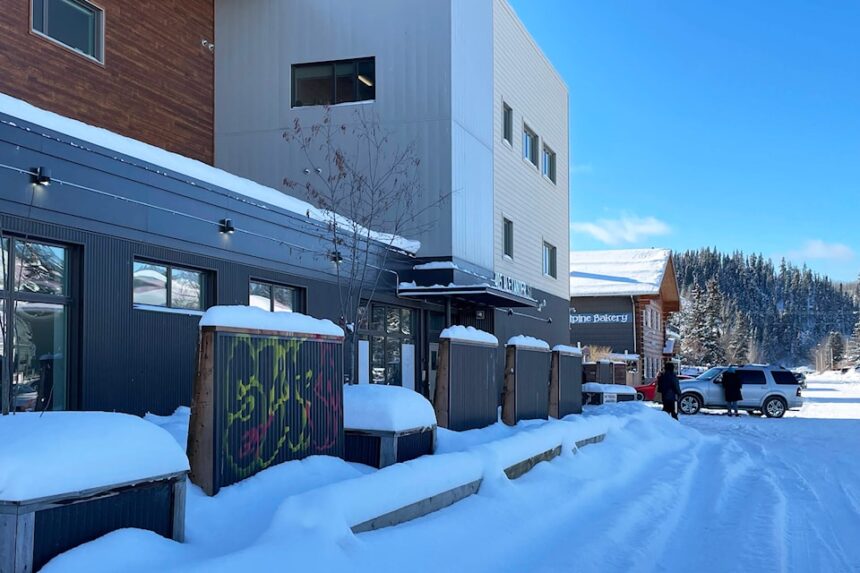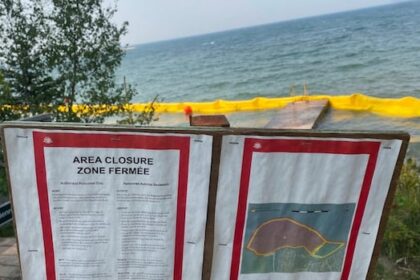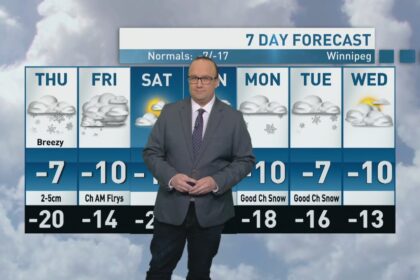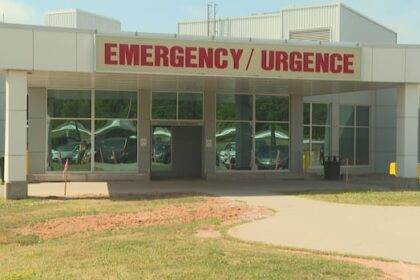Protestors stood in a circle, mourning family and friends who had passed away at the shelter Around forty people from across the Yukon gathered in front of the shelter at 405 Alexander on April 30 to demand changes in light of recent drug overdose deaths that have happened on the premises. Attendees went around a circle, sharing stories of grief and loss of loved ones to drug overdoses. People wore red shawls, sewn by inmates at the Whitehorse Correctional Centre, to remember those they were mourning: sisters, brothers, cousins, friends. One person held a sign that said “No more victims.” The shelter has been the site of multiple deaths in the past few years: as reported recently by the News, the coroner’s service in the Yukon has investigated 14 deaths at or in association with the emergency shelter since February 2020. A coroner’s inquest which took place last spring focused on the deaths of four Indigenous women at the shelter. Many of the protestors were First Nations, coming from Little Salmon Carmacks First Nation, Na-Cho Nyäk Dun, Teslin Tlingit Council, Kwanlin Dün First Nation, Carcross First Nation, Champagne and Aishihik, Ta’an Kwächän and Selkirk First Nations. Chief Dawna Hope of Na-Cho Nyäk Dun First Nation was also in attendance. Earlier this year, Na-Cho Nyäk Dun called upon the Yukon government to fire Connective — a non-profit and the current operator of the shelter — due to the deaths that had happened at the shelter, including that of a young NND citizen. The government instead extended the contract with the non-profit – a move Karen Nicloux, of Na-Cho Nyäk Dun, called a slap in the face. Nicloux had a cousin die at the shelter last year. She said that the shelter was the most dangerous building in the Yukon. “If Connective can’t clean it up they need to go,” she said at the protest. Nicloux told reporters that drug consumption and dealing is happening within the walls of the shelter. “This is not a safe consumption site. This is supposed to be a shelter where people go harbour, from the danger,” she said. Nicloux credited the work of Blood Ties Four Directions’ safe consumption site. She said she supports what they are doing and that people feel safe at that site, unlike at the shelter. “You know, if they overdose in here, they’re dead,” she said, standing outside the shelter. Earlier this year, at a press conference following the Yukon Forum, Pillai told reporters that shelter staff saved 17 people from overdosing between November 2024 and February 2025. “They don’t want to die. Addicts don’t want to die. Alcoholics don’t want to die, just numbing out their pain from trauma, unresolved trauma, period, and the government doesn’t get this. This harm reduction approach is not working.” She said that the issue of deaths at the shelter is not unique to First Nations, and she said three of the people who have died at the shelter were members of the LGBTQ community. “The government doesn’t seem to care about First Nations, and what they’re asking for,” said Nicloux. There was no obvious representation from the Yukon government at the rally. Nicloux said she wanted to see the shelter implement a no-drugs-and-alcohol approach, and she wants to see First Nations staff hired instead of current staff. “I want to see these two buildings safe for the clients. I want the staff to be laid off and they rehire First Nations people, people in recovery, people that have connections,” she said. “Like Barb said,” said Nicloux, referring to another person who spoke at the rally, “her son-in-law, had rigor mortis setting in, and the staff told her that they just checked on him, and he’s fine. Rigor mortis was setting in. Let’s see what Tracy McPhee and Ranj have to say about that.” Tracy-Anne McPhee is the minister of health for the territory. Lizzie Hall, an elder from Selkirk First Nation, spoke to reporters at the rally. She said she is turning ninety next month. She said two of her grandchildren died at the shelter. She said that elders have a role to play, and talked about the roles that elders’ councils played in the communities in the 1990s. “We used to have young generation come with us, teaching them how to live a life the traditional way, how to love each other,” she said. “Right here,” said Hall, “Nobody even allows the elder in to talk.” Contact Talar Stockton at talar.stockton@yukon-news.com
Friday, 6 Feb 2026
Canada – The Illusion
Search
Have an existing account?
Sign In
© 2022 Foxiz News Network. Ruby Design Company. All Rights Reserved.
You May also Like
- More News:
- history
- Standing Bear Network
- John Gonzalez
- ᐊᔭᐦᑊ ayahp — It happened
- Creation
- Beneath the Water
- Olympic gold medal
- Jim Thorpe
- type O blood
- the bringer of life
- Raven
- Wás’agi
- NoiseCat
- 'Sugarcane'
- The rivers still sing
- ᑲᓂᐸᐏᐟ ᒪᐢᑿ
- ᐅᑳᐤ okâw — We remember
- ᐊᓂᓈᐯᐃᐧᐣ aninâpêwin — Truth
- This is what it means to be human.
- Nokoma











